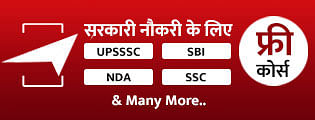
Hacking
Ethical hacking is the gaining of unauthorised access to data in one or more computers, performed by a company or individual to help identify potential threats on a computer or network.
An ethical hacker attempts to bypass the security of system and search for any weak points that could be prone to exploitation by malicious hackers. This information is then used by the person or organization that hired the ethical hacker, to improve the system security, in an effort to minimize or eliminate any potential attacks.
Ethical hackers are also called white hat hackers and hackers with malicious intent are also called black hat hackers.
For hacking to be considered ethical, the ethical hacker must obey the following rules:
1.Expressed and preferably written permission to hack the network and to identify potential security risks.
2. Respect the individual's or company's privacy.
3. Close out your work, not leaving anything open for you or someone else to exploit at a later time.
4. Let the software developer or hardware manufacturer know of any security vulnerabilities you locate in their software or hardware, if not already known by the company.
Personality Traits/Skills Required
1. Interested in staying updated with the latest developments in the world of computing.
2. Ability to work with details and very keen observation.
3. Adaptable and patient, ability to take on challenges
4. Very curious to know about how things work.
5. Problem solving, analytical and logical thinking.
6. Integrity and sincerity
7. Resourceful and creative.
8. Proficiency in programming in C, C++, Perl, Python, Ruby; web applications such as Microsoft .NET and PHP; operating systems such as Microsoft Windows, Linux; Assembly language ; TCP/IP protocols such as SMTP, ICMP and HTTP
Courses In India
To become an ethical hacker, a bachelors degree in a computer related discipline like BE in Computer Engineering, Bachelors in Computer Applications, will help, though not mandatory.
Ethical hacking is mainly taught as certifications in India and abroad.
Certifications In India
1. Certified Ethical Hacker offered by EC-Council. (http://www.eccouncil.org/)
2. Certified Hacking Forensic Investigator Certifications offered by of EC-Council. (http://www.eccouncil.org/)
3. GIAC Certified Intrusion Analyst (GCIA)
4. GIAC certified forensic analyst (GCFA)
5. GIAC Certified Penetration Tester (GPEN) offered by SAN (Security, Audit and Network)
6. NIIT (http://www.niitethicalhacking.com)
7. Indian School of Ethical Hacking (https://www.isoeh.com/) The above certifications have a duration from few weeks to 6 months.
Eligibility
To be eligible for a course in ethical hacking you should have passed 10+2.
Scope, Job Prospects and Sectors
Internet security and networking are the two fastest-growing industries where ethical hackers can find employment. Ethical hackers are hired to find any vulnerability that might exist in a network and to fix them. They can join the government as well as private organisations as cyber-security experts.
IT firms are the main recruiters of ethical hackers. They can also be required by financial service providers, airlines, retail chains and hotels.
In addition, government agencies such as various wings of the military and law enforcement, defenceorganisations, forensic laboratories, detective companies and investigative services offer challenging roles for ethical hackers.
Some skilled hackers work for investigative agencies like the Central Bureau of Investigation, the National Security Agency and the Federal Bureau of Information.
Some large organisations employ security testers and others use contractors to audit their systems.
Graduates can set up their own companies offering ethical hacking services. Companies such as Wipro, Infosys, IBM, TCS, Tech Mahindra, HCL, Airtel, Reliance and many more are also looking for good ethical hackers.
Designations that are used for this profile include Network Security Systems Manager, Network Security Administrator, Systems/Applications, Security Executive, Web Security Administrator, Web Security Manager, etc.
Salary
A fresher may work as an intern for a couple of months and can start with a minimum of ₹2.5 lakh per annum. With one year of experience, one can expect up to ₹4.5 lakh per annum. Those with work experience five years or more can rake in anything between ₹10-12 lakh per annum.
The various roles in which an ethical hacker can work in a company are:
1. Network Security System Administrator/Manager
2. Security Investigator
3. Network Security Engineer
4. Systems/Applications Security Executive
5. Web security Administrator/Manager
6. Security Auditor
7. Ethical Hacker
8. Data security specialist
9. Chief Information Security Officer
10. Computer Forensics Investigator
11. IT Security Administrator/Consultant/ Manager
12. Security Certified Programmer
13. Forensics Investigator
14.Security consultant
Conclusion
The field of ethical hacking will see exponential growth in the coming years as the world is moving towards a digital economy and the growing industries in every sector are going to need cyber security specialists in the form of ethical hackers to keep their systems safe and out of the reach of black hat hackers.
So for a student with an interest in coding and problem solving skills and interested in ethical hacking, not even the sky is the limit.
-Mohan Tiwari
Founder, CEO, Students Destination.com
Founder, CEO, Students Destination.com
For career related queries write to us at myresultplus@auw.co.in










